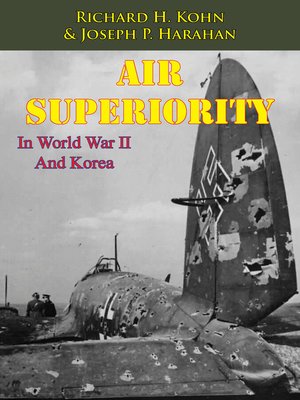
Sign up to save your library
With an OverDrive account, you can save your favorite libraries for at-a-glance information about availability. Find out more about OverDrive accounts.
Find this title in Libby, the library reading app by OverDrive.



Search for a digital library with this title
Title found at these libraries:
| Library Name | Distance |
|---|---|
| Loading... |
Includes over 20 illustrations. In November 1981, Lt. Gen. Hans H. Driessnack, Assistant Vice Chief of Staff, asked the Historical Program to assemble a small number of retired officers for a group oral history interview. General Driessnack believed that in reminiscing together, these officers would recall incidents and experiences that might otherwise go unrecorded; by exchanging ideas and questioning each other—in effect, interviewing each other—they would recall material that would be of interest and importance to the Air Force today. General Driessnack also suggested selecting retired officers from the senior statesman conference, a gathering every spring at which retired four-star generals are briefed on Air Force issues and then discuss them with contemporary Air Force leaders. The result is the following interview. The four participants—Gen. James Ferguson, Gen. Robert M. Lee, Gen. William W. Momyer, and Lt. Gen. Elwood R. "Pete" Quesada—gathered on May 21, 1982, around a table in the Vandenberg room at the Bolling Air Force Base Officers' Club. For approximately two and one half hours they responded to questions sent to them earlier and discussed air superiority in World War II and Korea. Their discussions ranged far and wide: flying in the pre-World War II Army Air Corps, campaigning in North Africa and Western Europe in World War II, planning and participating in the Normandy invasion, using secret intelligence supplied by Ultra, struggling to codify tactical air doctrine in the post-war years, fighting the air battle in Korea, and thinking about the general problem of air superiority throughout their careers. This collective interview is not history but the source material on which history rests; it is a memoir, a first-hand account by air leaders who flew, fought, and commanded tactical air forces in combat.







